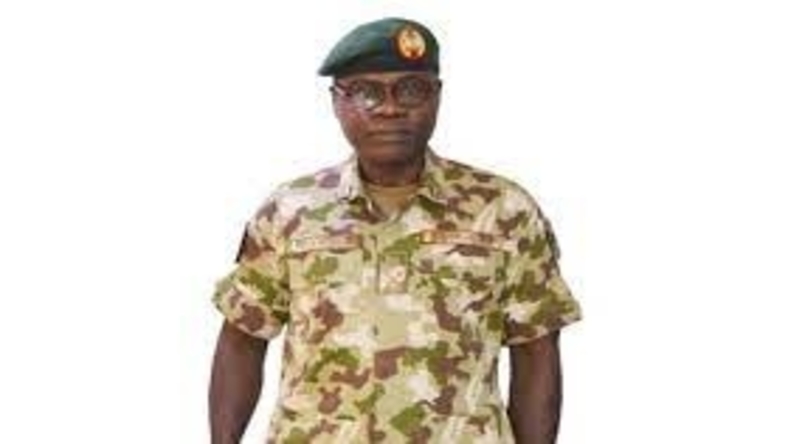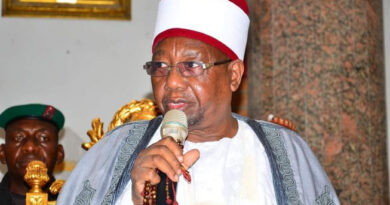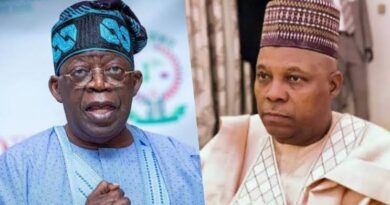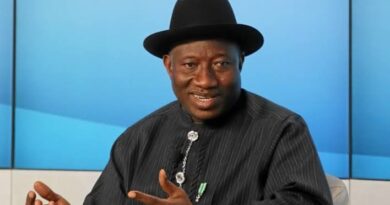COAS CHARGED TO ERADICATE INSURGENTS
The new Chief of Army Staff (COAS), Major General Faruk Yahaya has been charged to do his best in ensuring that insurgency and banditry are eradicated from the nation.
The call was made by some security experts who are worried about the rising insecurity across the six geo-political zones of Nigeria. Yahaya was charged to reach out to neighbouring countries to curb the situation.
Yahaya, who has now been confirmed by the National Assembly as substantive army chief, is coming in when the military is faced with myriads of internal security challenges.
Recall that Major-General Farouk Yahaya was appointed by President Muhammadu Buhari a few weeks ago as the new Chief of Army Staff to replace the late Lt. General Ibrahim Attahiru, who died in a plane crash in Kaduna together with 10 other military officers recently. Yahaya is of Regular Course 37.
A former military officer and Managing Director of Strict Guard Security, Dr Bone Efoziem charged the new Army Staff to partner with neighbouring countries solidly to end the scourge. According to him, “The new chief should do more collaboration with neighbouring countries so as to control support and supply to the bandits and terrorists. He should improve personnel welfare and avoid keeping them too long in combat areas to avoid combat fatigue.
“He should relate better with other sister agencies to increase intelligence and aerial aided engagement. Increase non-kinetic activities through the engagement of the media and communities.”
On his part, the Executive Director, Civil Society Legislative Advocacy Centre (CISLAC), Auwal Musa Rafsanjani, who also lends his voice to the new Army Staff, said the state no longer has the monopoly of force as it has lost control. “Massive onslaught against schools, kidnapping, insurgency in the North, banditry in entire parts of the country and the emerging monster; secessionists agitation in the South are lined up for the new chief to engage. The country is bleeding and to be honest, there is little or no time for any ceremony,” Rafsanjani said.
Data from SBM Intelligence shows that between January and November 2020, there was 142 incidents of insurgency in northeast Nigeria, an average of 13 a month. At least 1,606 people were killed in 125 fatal incidents, an average of 13 per incident, suggesting that Nigeria is the third-most terrorised country in the world, according to the Global Terrorism Index released on November 27, 2020.
“In April 2021 alone, almost 600 civilians were killed across the country and at least 406 abducted by armed groups. The violence has left much of the country on edge and Buhari facing the fiercest criticism since he took office.
“A weak state is both a consequence and enabler of the growing chaos. Armed gangs, operating out of poorly administered rural areas or the neglected shantytowns of cities are part of a deeply entrenched criminal industry. The substantial profits they earn allow them to purchase more and better weapons, and the intimidation or the pay-off of yet more local officials and members of the security forces.
“The sheer amount of ungoverned spaces that exist in Nigeria is the problem, with an unemployment rate of over 33 per cent and anaemic economic growth-you know it can’t get better. These are the things driving insecurity. Separatist unrest in the southeast has particular resonance in Nigeria. The self-declared state of Biafra was mainly an Igbo secessionist enclave that existed from 1967 until its defeat by federal forces in 1970, in a war that may have claimed as many as one million lives.
“The resurgence of the idea of self-determination stems from a perception of the region’s deliberate marginalisation by the government of President Muhammadu Buhari, and the heavy-handed policing by security forces that have killed hundreds of people, since he was elected in 2015, according to Amnesty International.
“That local grievance has helped drive the rise of IPOB, whose goal is to create a “new Biafra”, via a referendum. Despite IPOB’s non-violent calls for a “Biafraexit”, it was banned as a terrorist organisation in 2017,” Rafsanjani said.
Meanwhile, the Chief of Army Staff had shown vigour has taken to his heel with the immediate visit to the theatre headquarters of Joint Task Force North East Operation HADIN KAI (OPHK) with a view of motivating fighters. This is his maiden functioning visit to the theatre to gauge the operational and welfare state of the troops. During his visit to the hospitals, he gave assurance to the troops of adequate medical care and support in the ongoing counter-insurgency operations.
During his visit, the COAS interacted with the soldiers, stating that their medical care is of utmost importance to him. He said the nation is indeed proud of its selfless service and sacrifices towards restoring peace to the North East region.
Similarly, Yahaya visited the Mechanical Repair Group to inspect the ongoing repairs and refurbishment of vehicles through the use of local resources. He appreciated the commitment and selflessness of the troops in the Theatre and beseeched them to demonstrate a high level of professionalism and ensure that all remnants of Boko Haram and Islamic State of West Africa Province (ISWAP) terrorists are defeated.




